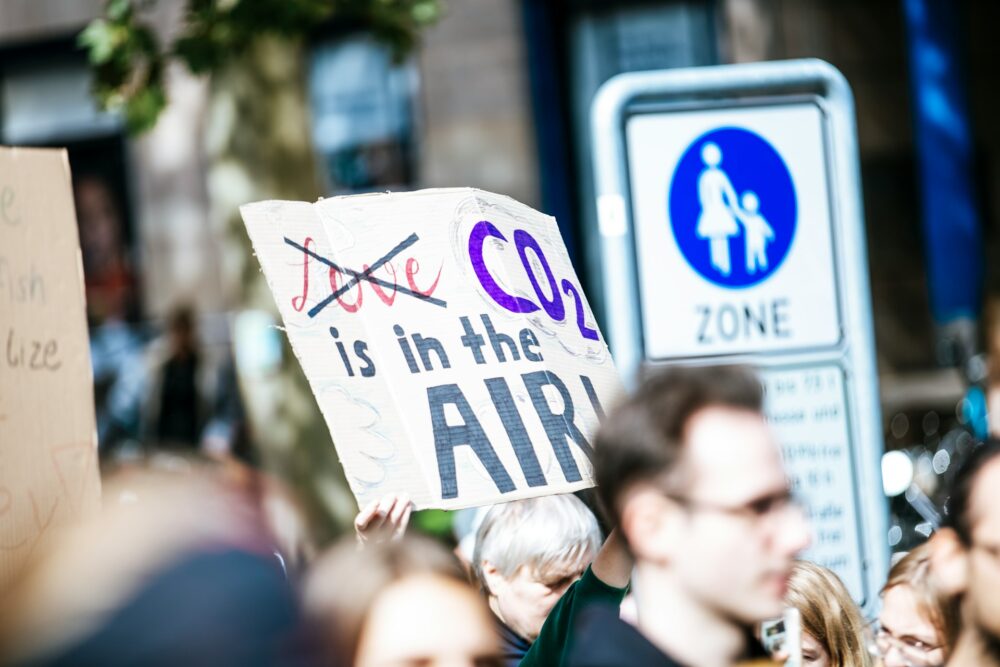Impact Investing
Carbon Credit Markets Put to the Test by Donald Trump
State-led carbon markets like California’s Cap-and-Trade and the Regional Greenhouse Gas Initiative (RGGI) are poised to endure and potentially strengthen under federal climate rollbacks. Their independence, legal resilience, and adaptability could tighten emissions caps and raise carbon prices. Increased fossil fuel reliance might boost CO₂ allowance demand, emphasizing carbon pricing’s importance in achieving climate goals.

Donald Trump ’s victory inevitably raises questions about the future of US climate policy and, in particular, regulated carbon credit markets.
With federal climate action likely to slow under the Trump administration, attention is now shifting to state-led initiatives such as California’s Cap-and-Trade Program and the Regional Greenhouse Gas Initiative (RGGI), which covers the energy sector across the Northeast and Mid-Atlantic states.
Below, we discuss why these state-led carbon credit markets are likely to remain resilient, and may even strengthen, in response to a change in federal leadership.
Independence at the state level
Unlike federal climate policies, compliance carbon markets in the United States are established and managed at the state level. California and the RGGI member states set their own rules, making these programs largely independent of federal influence. This local autonomy allows them to continue pursuing ambitious climate goals, regardless of changes in Washington.
New cap-and-trade programs spanning various sectors of the economy are under consideration: New York State, for example, is currently designing its own market, while Oregon, Maryland, Vermont, and New Jersey already have proposals underway.
Proven legal resilience
Both the California program and RGGI have withstood numerous legal challenges, proving their resilience. This resilience suggests that, even with a more conservative federal administration, these markets are poised to defend themselves and continue to drive emissions reductions.
Given the regulations already in place, efforts to dismantle these programs at the federal level would face significant legal hurdles. The recent referendum on Washington’s Cap-and-Invest program had strong grassroots support, providing further evidence of the resilience of cap-and-trade systems that not only reduce emissions but also benefit local communities.
Potential to strengthen programs
Historically, states with ambitious climate goals, often Democratic-dominated states, have tended to step up climate action when they face federal resistance. Trump’s victory could therefore lead California and the RGGI states to step up their programs.
This could mean tightening emissions caps, raising carbon prices, or expanding the sectors covered by their systems.
Support for fossil fuels could increase demand for CO2 (carbon) allowances
The new administration is expected to prioritize fossil fuel development while scaling back policies that support renewable energy and electric vehicles. Many of the Trump administration’s regulatory actions have faced significant legal challenges during its first term.
However, if some of these actions are successful, such as limiting offshore wind development on the East Coast, fossil fuel use will likely increase, and demand for carbon allowances to cover the resulting emissions increases will also increase. While we believe the likelihood of a substantial impact on cap-and-trade programs is low, the risk appears to be tilted to the upside, highlighting the growing importance of carbon pricing as a key tool for achieving climate goals.
Incentive to introduce CO2 duties
On a more speculative note, with the Trump administration favoring tariffs on foreign goods, we see a potential opportunity for the U.S. to introduce CO2 tariffs similar to what the EU and UK have done with the Carbon Border Adjustment Mechanism (CBAM).
Such a mechanism could boost U.S. industry in sectors already being emphasized by President Trump, including steel and aluminum, by discouraging foreign imports while keeping the country competitive with other nations that have or plan to implement CBAMs.
__
(Featured image by Markus Spiske via Unsplash)
DISCLAIMER: This article was written by a third party contributor and does not reflect the opinion of Born2Invest, its management, staff or its associates. Please review our disclaimer for more information.
This article may include forward-looking statements. These forward-looking statements generally are identified by the words “believe,” “project,” “estimate,” “become,” “plan,” “will,” and similar expressions. These forward-looking statements involve known and unknown risks as well as uncertainties, including those discussed in the following cautionary statements and elsewhere in this article and on this site. Although the Company may believe that its expectations are based on reasonable assumptions, the actual results that the Company may achieve may differ materially from any forward-looking statements, which reflect the opinions of the management of the Company only as of the date hereof. Additionally, please make sure to read these important disclosures.
First published in ESG NEWS. A third-party contributor translated and adapted the article from the original. In case of discrepancy, the original will prevail.
Although we made reasonable efforts to provide accurate translations, some parts may be incorrect. Born2Invest assumes no responsibility for errors, omissions or ambiguities in the translations provided on this website. Any person or entity relying on translated content does so at their own risk. Born2Invest is not responsible for losses caused by such reliance on the accuracy or reliability of translated information. If you wish to report an error or inaccuracy in the translation, we encourage you to contact us

-

 Biotech2 weeks ago
Biotech2 weeks agoTwogee Biotech Advances Industrial Enzyme Solutions for Circular Production
-

 Crypto5 days ago
Crypto5 days agoUniswap and BlackRock Partner to Launch BUIDL in DeFi
-

 Cannabis2 weeks ago
Cannabis2 weeks agoScientifically Verified F1 Hybrids Set New Benchmark for Indoor Cannabis Yield and Consistency
-

 Biotech18 hours ago
Biotech18 hours agoNew Molecular Clues Explain Aggressive Neuroblastoma and Point to Targeted Treatments
























